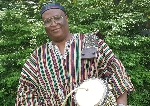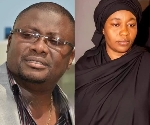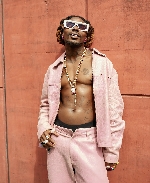Fuse ODG underlines multi-dimensional value of Afrobeats, reacting to Buju Banton's take
 Singer and music executive Fuse ODG in his This Is New Africa (TINA) cap
Singer and music executive Fuse ODG in his This Is New Africa (TINA) cap
Afrobeats legend Fuse ODG has challenged Reggae/Dancehall legend Buju Banton’s thoughts on Afrobeats being lightweight.
In a social media video shot in his car, Fuse ODG underlined the assorted value Afrobeats has given Africans on the continent and those in the diaspora, calling it the most revolutionary African music ever.
He argued Afrobeats has demonstrated socio-economic power, reviving African pride, fostering cohesion, and impacting economies, among other things.
The UK-based Ghanaian singer-songwriter and rapper asserted Afrobeats, contrary to some opinions, can be both socially conscious and lighthearted, exemplified by his own world-famous catalogue.
Fuse ODG also highlighted how, at its core, Afrobeats charm is in being the unmatched melting pot of all forms of music of African origin worldwide. Here, he acknowledged Jamaica’s contributions to Afrobeats via Reggae and Dancehall.
Finally, he saluted Buju Banton as a beloved legend but emphasised the Jamaican singer was wrong in his recent assessment of Afrobeats music as uninspiring, out of touch with the African plight and distracted by moneymaking.
Read Fuse ODG’s entire statement below:
“I came on my timeline and I’ve seen Buju Bunton's video on his views on Afrobeats.
“Now Buju is a legend, big guy and he's entitled to his opinion but he definitely missed it here and that's one of the few Afrobeats artists who have experienced both extremes – you know conscious Afrobeats to commercial Afrobeats. On one hand I have a song with Major Lazer, Light It Up, that has over a billion streams; on the other, I have a song with Damian Marley, Brafie, and it's a song about bringing our people back home and building in The Motherland.
“Afrobeats is the most revolutionary form of Black music to have ever existed but can't deny that Afrobeats would not exist in its current form if it wasn't for Highlife, Jazz, Hiphop, R&B, Reggae, Dancehall, Garage or Grime, Soul – it's an amalgamation of all of these genres. In fact, you can even say it's the child of all of these genres and a child should always respect his or her parents.
“A tree wouldn't exist without its roots but let's not forget that the roots always lead back to Africa and I get where Buju's coming from because most Afrobeats hits don't really have the message in it but that's not to say there aren't Afrobeats artists who are making music with a message in it, but for me it doesn't have to be that deep because Afrobeats is so spiritual, a lot of times we're speaking in our mother tongues but it still resonates with people and this is music that's allowing Africans to now fall back in love with themselves and be proud of being Africans; allowing African Americans to want to come back home and connect back to their roots. It's allowing the Afro-Caribbean to now want to reconnect with their roots so it's revolutionary in a way that has never been done before.
“In 2019 I launched the Year of Return with the Ghana government and we generated US$1.3 billion for the Ghana economy. Before the Year of Return, the office was issuing out 45,000 visas that year. After the Year of Return, they issued out 750,000 visas.
“As well as the economic benefits, there are also spiritual benefits.
“The music is bringing our people back home for them to learn about their history and where they're from and most times people are just coming to turn up and get lit because it's December in Ghana but it's now allowing Black people to take ownership back of The Motherland and we're buying lands, we're building homes most of my artist friends now have homes in Ghana, we're building schools; I'm now building a tech company that teaches Black history called Sona.
“It teaches Black history in African languages and that all started with the music; it all started with Afrobeats. So I always say to people Afrobeats is not just lit its actually liberation and it's bringing our people back home so we need to just focus on uniting as a people and building together.
“So big up Buju. Bro, we love you but you really missed it here.”
Trending Entertainment

German court jails man for drugging, raping and filming wife for years
19:33
Professor Paschal Yao Younge calls on Ghana’s MoTCCA to champion Global Arts Fest 2026
19:23
Vice President NJOA reaffirms government support for tourism culture and the creative arts
17:45
TikTok owner signs deal to avoid US ban
14:22
Michael Adangba survives life threatening accident
11:25
Former Adenta MP declares interest in marrying Daddy Lumba’s widow
10:39
Ghana Tourism Authority reopens Nationalism Park to boost tourism sector
08:57
Secrets to sustained success is authenticity, collaboration, Asake says
00:53
Asante Mampong kingsmakers present successor to Otumfuo Osei Tutu II
16:54
Kofi Kinata set to support youth empowerment at upcoming Made in Taadi Youth Seminar
15:30




